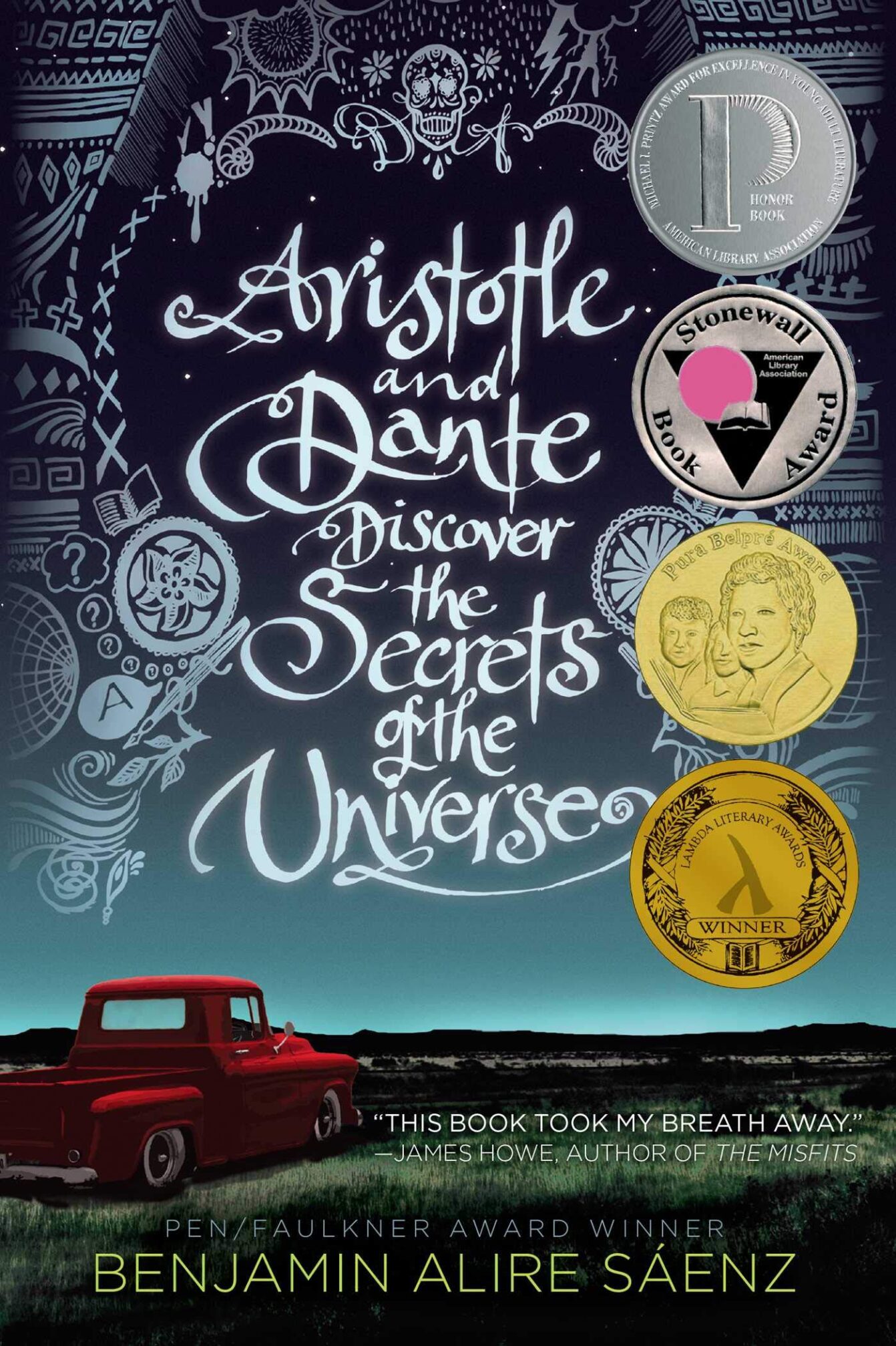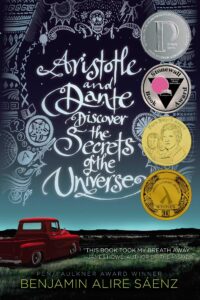Aristotle and Dante Discover A Very Unnecessary Sequel

by Erica Kuhlmann ‘22
 Since its publication in 2012, multi-award-winning Aristotle and Dante Discover the Secrets of the Universe by Benjamin Alire Sáenz has found international acclaim from critics and audiences alike. In 2016, a sequel was announced to be in the works, and five years later, after multiple delays and title changes, it was finally released in October of 2021. Aristotle and Dante Dive Into the Waters of the World had some big shoes to fill, facing high expectations due to both the quality and depth of the first novel and the years that fans had to wait for its publication. Unfortunately, it comes nowhere near meeting those expectations.
Since its publication in 2012, multi-award-winning Aristotle and Dante Discover the Secrets of the Universe by Benjamin Alire Sáenz has found international acclaim from critics and audiences alike. In 2016, a sequel was announced to be in the works, and five years later, after multiple delays and title changes, it was finally released in October of 2021. Aristotle and Dante Dive Into the Waters of the World had some big shoes to fill, facing high expectations due to both the quality and depth of the first novel and the years that fans had to wait for its publication. Unfortunately, it comes nowhere near meeting those expectations.
The novel’s plot picks up more or less immediately where the first book left off, and follows quite a similar structure. The reader follows Aristotle “Ari” Mendoza through a summer and his senior year of high school as he and Dante attempt to navigate a new romantic relationship in the unaccepting environment of 1980s El Paso, Texas. It’s difficult to describe the plot of this book because, like the first book, it focuses mainly on the development of characters and the relationships between them.
This book fails where the first succeeds with this structure because the dialogue and characterization are very one-note. All the characters basically speak, think, and act the same way. There are so many incredibly heavy and complex themes attempted at once that every character becomes an empty shell for the author to philosophize through. The frequent waxing poetic and “deep” monologues do not reflect how people speak in real life, and it makes interactions between characters seem stilted and strange.
The writing is often overly dense and flowery, preferring to “tell” rather than “show” the messages the reader is intended to take away. It seems severely under-edited, at times reading like someone trying to meet the minimum word count on an essay and stating in a lengthy paragraph what could have been expressed in a single sentence. Not to mention that the messages and events of the story in general are incredibly repetitive and each sentiment and main idea is not only stated directly, but repeated multiple times, as if readers can’t be trusted not to miss the purpose of the book. Despite featuring three funerals and over 150 mentions of crying, the novel in general fails to be emotionally moving because of a monotonous pace and tone that ends up thundering through key moments and dragging out minor ones.
That’s not to say every moment in this book is bad. There are some moments where the funny, genuine, and unique characters of the first book do shine through. However, these moments are far between enough that they only really serve to remind readers of how much lower quality the rest of the story is than what could usually be expected of Sáenz.
In the acknowledgments, Sáenz states that he had originally never intended to write a sequel to the first book, and that is abundantly clear in every aspect of this novel. For fans of Aristotle and Dante, this will feel like an empty, pointless, difficult-to-finish sequel.
Grade: C-